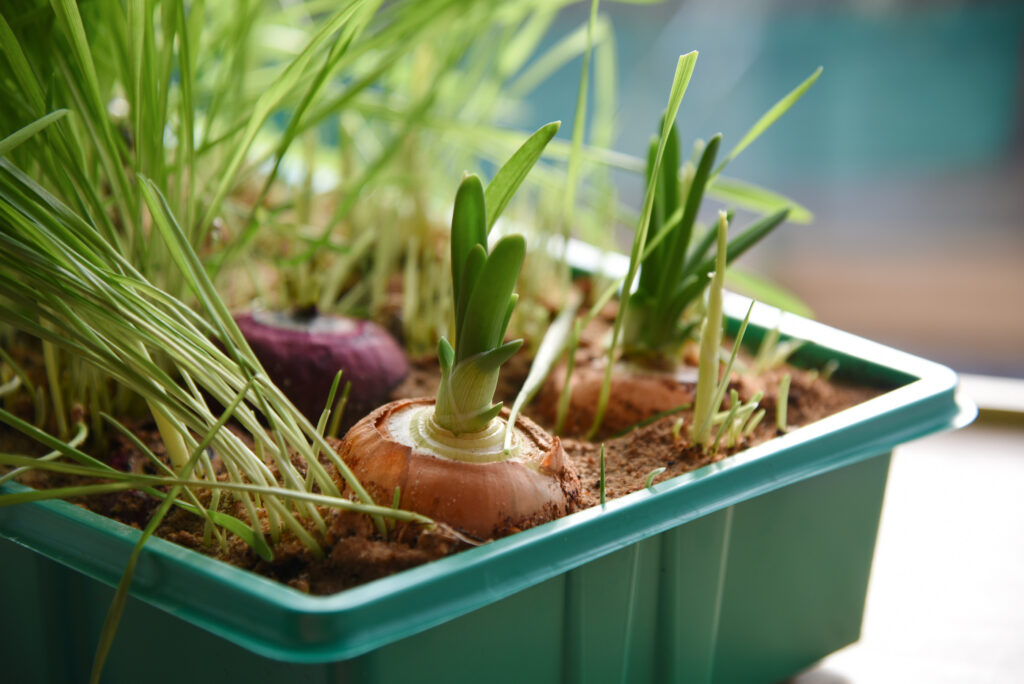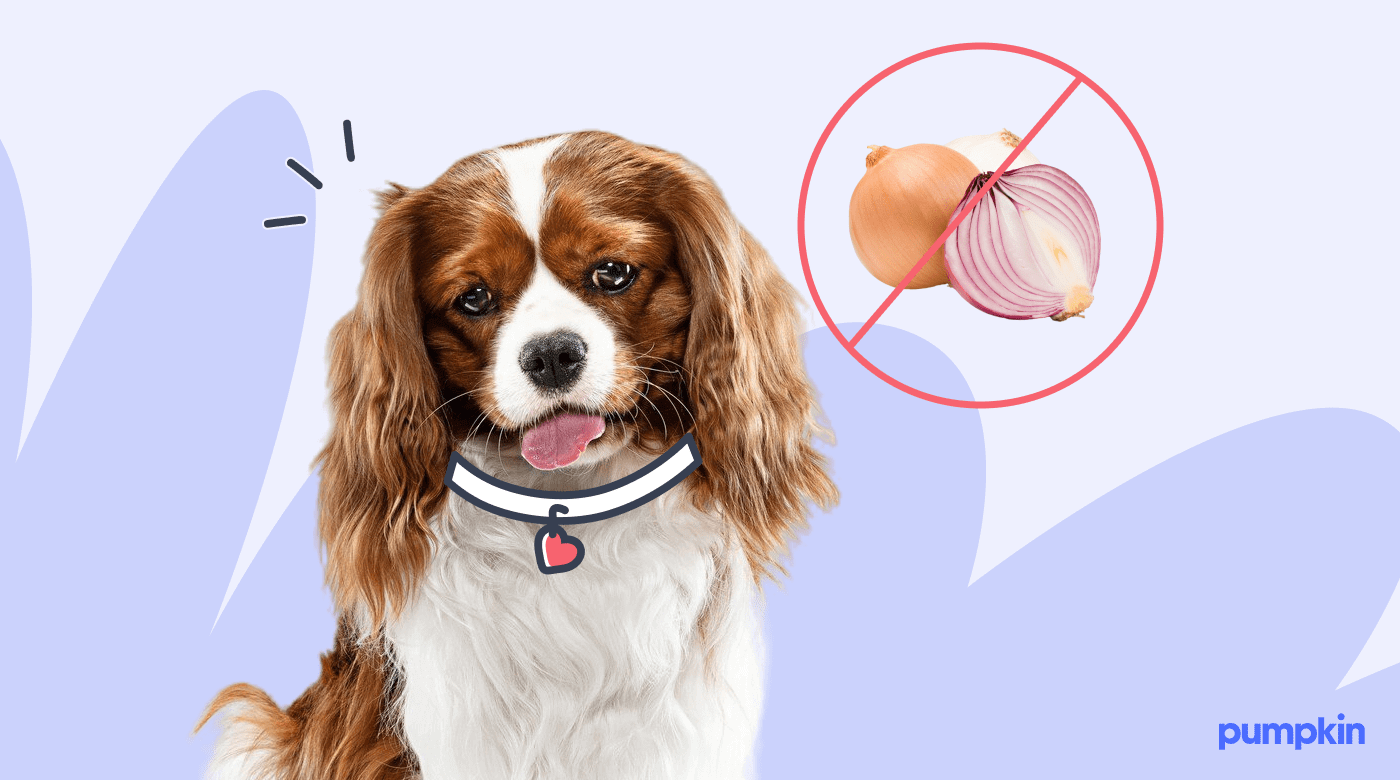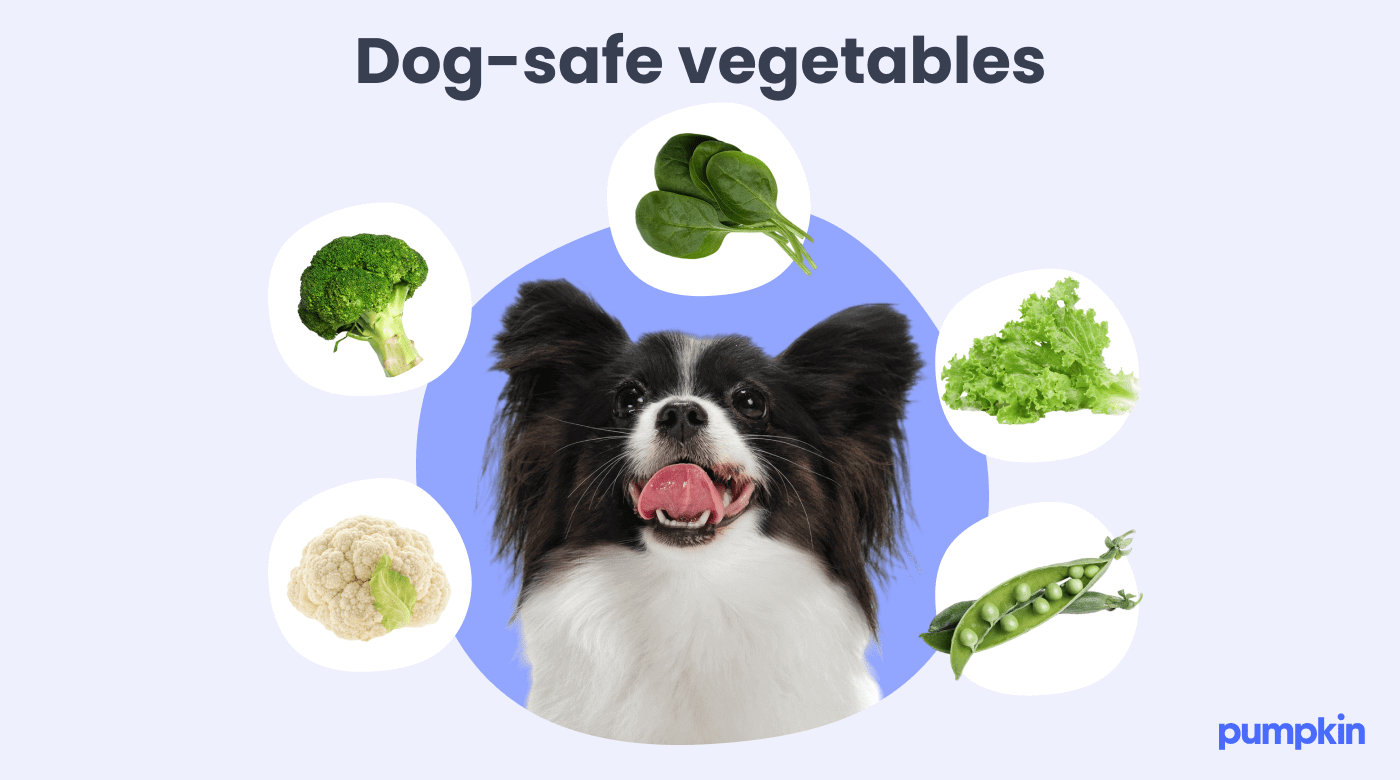- Lynn Guthrie
- Sep 11, 2024
- 7 min read
Key Points:
Onions are toxic for dogs and pose serious health risks that can lead to kidney failure and death.
Onions can cause hemolytic anemia in dogs, a condition that leads to the destruction of red blood cells.
Dogs should avoid all forms of onions, including raw, cooked, powdered, or dehydrated.
As much as we love our dogs, we don't always love doggy breath. And if your pup's breath leaves something to be desired, can you imagine how it might smell after they chowed down on an onion?
Blegh.
Here’s a better question: Can dogs eat onions safely?
In all seriousness, onions are not safe for dogs. If they do take a bite, bad breath will be the least of your worries. Even a small amount of onions are toxic for dogs and can lead to serious health conditions — or even death.
Learn more about why dogs can’t eat onions and the veggie alternatives to reach for instead.
All onions are toxic to dogs
All onions — chives, shallots, white, yellow, green, and red onions — can cause onion toxicosis.
Whether cooked or raw, all parts of the onion, including the leaves, flesh, skin, and juice, are dangerous for your pet. (Onions aren’t safe for cats, either.)
Onions belong to the allium family of root vegetables, along with leeks, scallions (green onions), shallots, chives, and garlic. (Yes, garlic is also toxic to your pup.) You should keep all of these ingredients out of paw's reach.
Onions and other allium vegetables may be the perfect addition to your guacamole, spaghetti bolognese, or burger. But even foods with minimal amounts of onion, salt, or chives can cause significant health issues for your pup.
Onion is on the no-go list for all breeds, but pups of Japanese descent, like Akitas and Shiba Inus, are at the highest risk of onion toxicosis.
Can puppies eat onions?
No, just like adult dogs, puppies can’t eat onions. Even a few bites can cause digestive problems, lethargy, pain, and other serious symptoms.
Remember, puppies have sensitive stomachs and need a balanced diet to help them grow. Your trusted vet or breeder can help you create a diet that ticks all of the boxes.
What happens if a dog eats onions?

Unlike humans, dogs don’t have the right enzyme for digesting onions and other plants in the allium family. When your pup digests these foods, their body enacts an auto-immune response toward their red blood cells.
This can lead to a serious condition called hemolytic anemia, where the destruction of red blood cells causes weakness, fatigue, and low blood pressure.
Symptoms of toxicity and onion poisoning can start quickly but most commonly appear a few days after ingestion.
Symptoms of onion toxicity in dogs
Onion toxicity in dogs can be serious. If you think your dog has eaten an onion, watch out for symptoms such as:
It’s important to seek immediate medical support because most dogs will bounce back with early treatment. If medical care is delayed, kidney failure or death can occur.
How much onion is toxic to dogs?
There is no safe amount of onion for dogs, but accidents can happen — we get it. If your pup does gobble up an onion, you may wonder how much to worry.
As little as 0.5% of their body weight in onions can be toxic for dogs. So, for a 40-pound dog, just 0.2 pounds (about 91 grams) of onions could cause onion toxicosis. Think about what that means for a tiny Yorkie!
If you do have a larger breed and they sneak a small slice, it probably won’t cause too many issues. However, you should continue to monitor them closely and check in with your vet for personalized advice. You can also contact the Pet Poison Helpline.
Why are onions so toxic to our pups?

The sulfur compounds in onions cause hemolytic anemia, which means red blood cells are being destroyed faster than they regenerate. While humans can safely digest the sulfur compounds that give onions their characteristic smell and culinary powers, our dogs can’t.
When these compounds break down and enter the bloodstream, anemia and other health problems occur. Let’s say your dog has a bite of your quiche for breakfast, onion rings for lunch, and sauteed mushrooms and onions for dinner. The onion compounds will build up in their system, and eventually, they will develop symptoms of onion toxicosis. They won’t just “poop it out” and be fine.
Remember: Fresh onions aren’t the only danger. Onion, including onion powder, can be hidden in a range of human foods, including sauces, soups, stock, and seasonings, which is why onion poisoning is such a big risk for sneaky snackers.
Pet Pro Tip:If you have a dog that is prone to ‘snacksidents’ – you should consider getting a dog insurance plan as soon as possible. It can help you afford the best care in the future by covering eligible vet bills for digestive illnesses, toxic ingestion, and more.
What should I do if my dog eats onion?
It doesn’t take much onion to cause trouble for your dog. The seriousness will depend on the size of your pet, and how much onion they have eaten.
Even a small onion can be toxic to a small or medium-sized dog, but all pets will react differently.
The first step is to contact your vet for advice. If your usual vet is unavailable and you suspect your dog is suffering from onion toxicosis, a trip to an animal hospital is recommended.
The type of information you’ll need to provide includes:
The age, size, and breed of your pet
When they ate the onion
The specific type of food they ate
How much onion they ate
Any unusual symptoms or behavioral changes
The ASPCA Animal Poison Control Helpline is also available 24/7 to provide support and answer any questions.
Treatment for onion toxicity
If you think your dog ate onions, or even part of one, check in with your vet right away. Time is of the essence.
A typical treatment plan may include:
Step 1: Diagnosis
The vet will order a urinalysis to check for increased hemoglobin in the urine. They will also arrange blood work to look for damage to red blood cells.
Step 2: Treatment
Vomiting may be induced if onions were ingested recently. There could also be a stomach flush to remove any toxic, undigested portions.
The vet may administer activated charcoal to absorb toxins in the gut. IV fluids will flush the bloodstream and maintain hydration.
Severe cases may require supplemental oxygen and blood transfusions.
Step 3: Prognosis
Your dog will spend some time at the vet clinic being closely observed until the crisis is over.
Most dogs will be fine after a mild case of onion poisoning, but more severe cases will have a longer recovery time.
How to prevent onion toxicity in pets
Dogs will eat just about anything within reach — including onions.
There are a range of ways to keep your pet safe from this toxic veggie:
Store onions and other allium vegetables out of reach
Avoid feeding your dog table scraps, even if they beg
Read food labels carefully and check for onion powder and other unsafe seasonings
Educate family and houseguests so they understand the risks
Prevention is better than treating onion toxicity, and anything you can do to stop your dog from eating onions will be worth the effort.
What vegetables can dogs eat?
So, your dog can’t eat onion, garlic, or leeks. Does this mean other vegetables are off the table?
The good news — you can include plenty of fresh produce in your dog’s diet.

Here are some of our favorite greens and veggies you can share with your pup:
The bottom line: Can dogs have onions?
Raw onions, dehydrated onions, onion powder, onion juice, fresh or cooked onions — they’re all dangerous for your dog.
There is no safe amount of onion to feed your pet, but larger dogs can have better tolerance and health outcomes than smaller ones. To protect our dogs, we should never give them onions in any form. And because onions are such a common ingredient in our favorite dishes, always check labels before sharing human foods with your canine companion.
If your dog does eat onions, give your vet a call. They will give you the right advice based on their size and breed. A dog insurance plan may help in case of future accidents by covering a portion of the cost of eligible vet bills.
FAQs
Can dogs eat cooked onions?
No, cooked onions aren’t safe for dogs. Anything containing cooked or fried onions can be toxic for your puppy pal. Meat dishes, potato dishes, egg dishes, dressings, and sauces can also contain onions or onion powder. Avoid raw or dehydrated onions and onion juice, too.
Can dogs have chicken broth with onion?
No, if onion is on the ingredients list, the food should be avoided. Onion is toxic for dogs and cats, and there is no safe serving size. Broth or stock containing onions can be found in soups, stews, and other recipes, so be careful. If you want to share human food with your dog, the best option is to choose fresh, plain fruits and vegetables.
Are onion powder and garlic powder safe for dogs to eat?
Vegetables from the allium family, such as garlic and onion are not recommended for dogs. This rule applies to minced, powered, and pureed varieties, too. In fact, powered onions and garlic can be more potent than fresh — adding to the toxicity risk.
REFERENCES

